Ambassadors of Latin America and the Caribbean (LAC) to China convened on June 18 at Tsinghua University's Jianhua Building of the School of Economics and Management to discuss "China's Investments and the Development of LAC Countries."
Over 30 diplomatic envoys and representatives from 17 LAC countries attended the event. Opening remarks were given by Li Luming, president of Tsinghua University, Fernando Lugris, Uruguayan ambassador to China, and Cai Wei, director general of the Department of Latin American and Caribbean Affairs of the Ministry of Foreign Affairs. Closing remarks were delivered by Yang Bin, vice president of Tsinghua University.
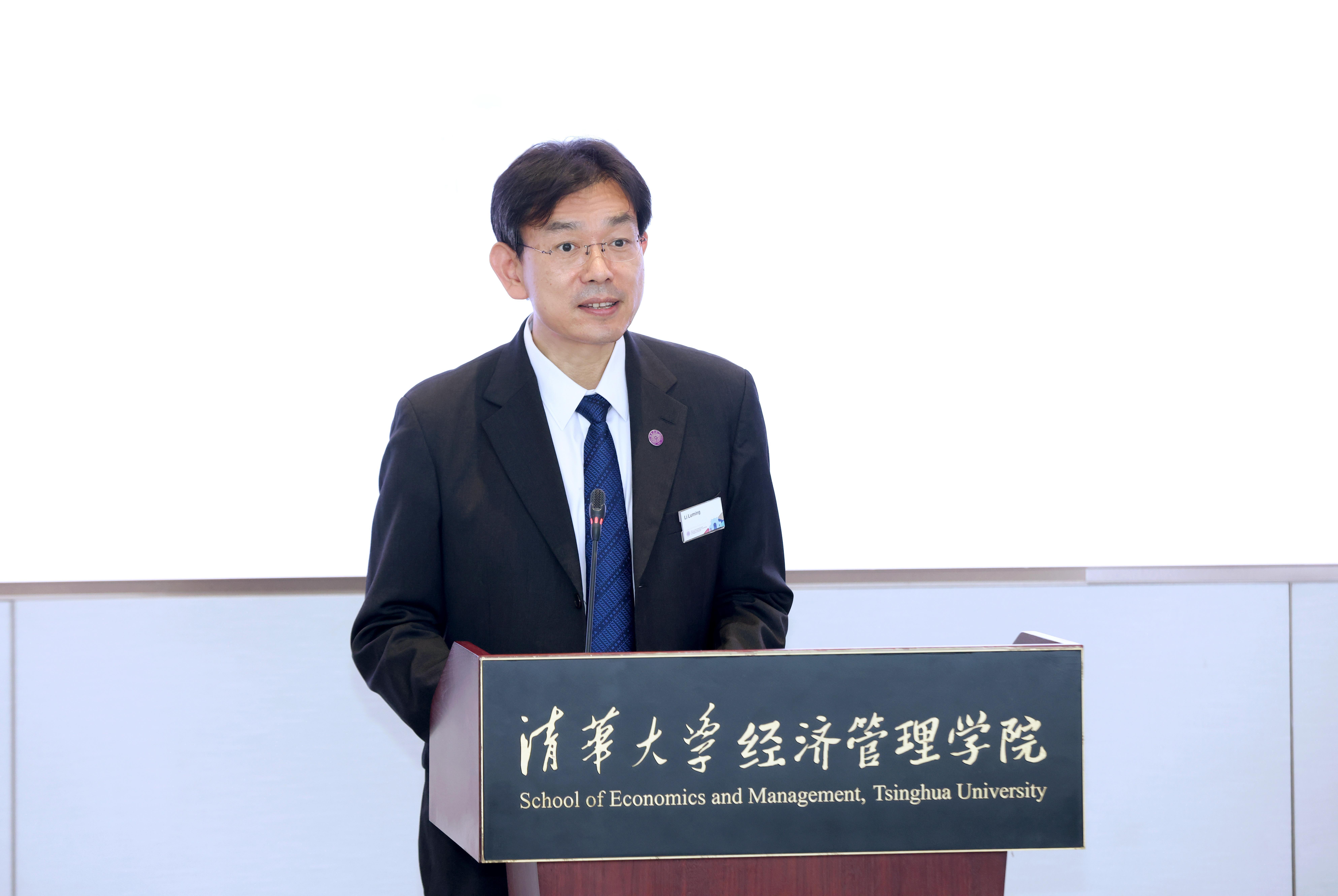
Li Luming delivers a speech.
Li Luming welcomed and thanked the guests. He said this year marks the 10th anniversary of the establishment of the China-CELAC Forum. Over the past decade, the friendly cooperation between China and the region has seen fruitful development across various fields, particularly in new infrastructure investments, reflecting a shared commitment to quality and sustainable development, and addressing global challenges such as climate change, he noted.
Li highlighted that 2024 is a significant year as it marks the 75th anniversary of the founding of the People's Republic of China, and a crucial year for implementing the strategy to build a leading country in education, and promote the high-quality development of the University.
He said the University supports this strategy through talent, technology, and innovation services, and advocates for open education.
The University has launched the International Joint Mission on Climate Change and Carbon Neutrality, and have cooperated with global partners on public health, AI governance, digital transformation of education, and other areas of common challenges and interests.
Leveraging the Latin America Center, Tsinghua has deepened its exchanges with LAC countries. He said he hopes that the dialogue would enable participants to share their wisdom and experiences, enhance understanding, broaden consensus, and promote China-LAC friendship and cooperation, contributing to the building of a community with a shared future for mankind.
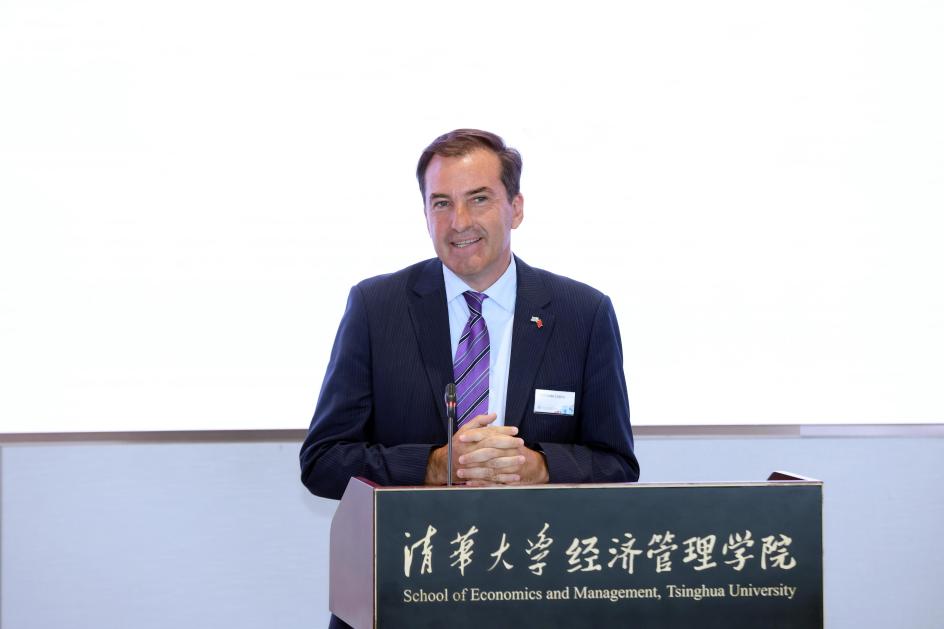
Fernando Lugris delivers a speech.
Fernando Lugris thanked Tsinghua University for hosting the event, calling it "timely" and "meaningful." He discussed China's pivotal role in the sustainable development of the LAC region, noting China as a key partner in trade, financing, and investment. Coinciding with the 10th anniversary of the China-CELAC Forum, he called for increased high-quality Chinese investments in sectors like science, technology, and innovation.
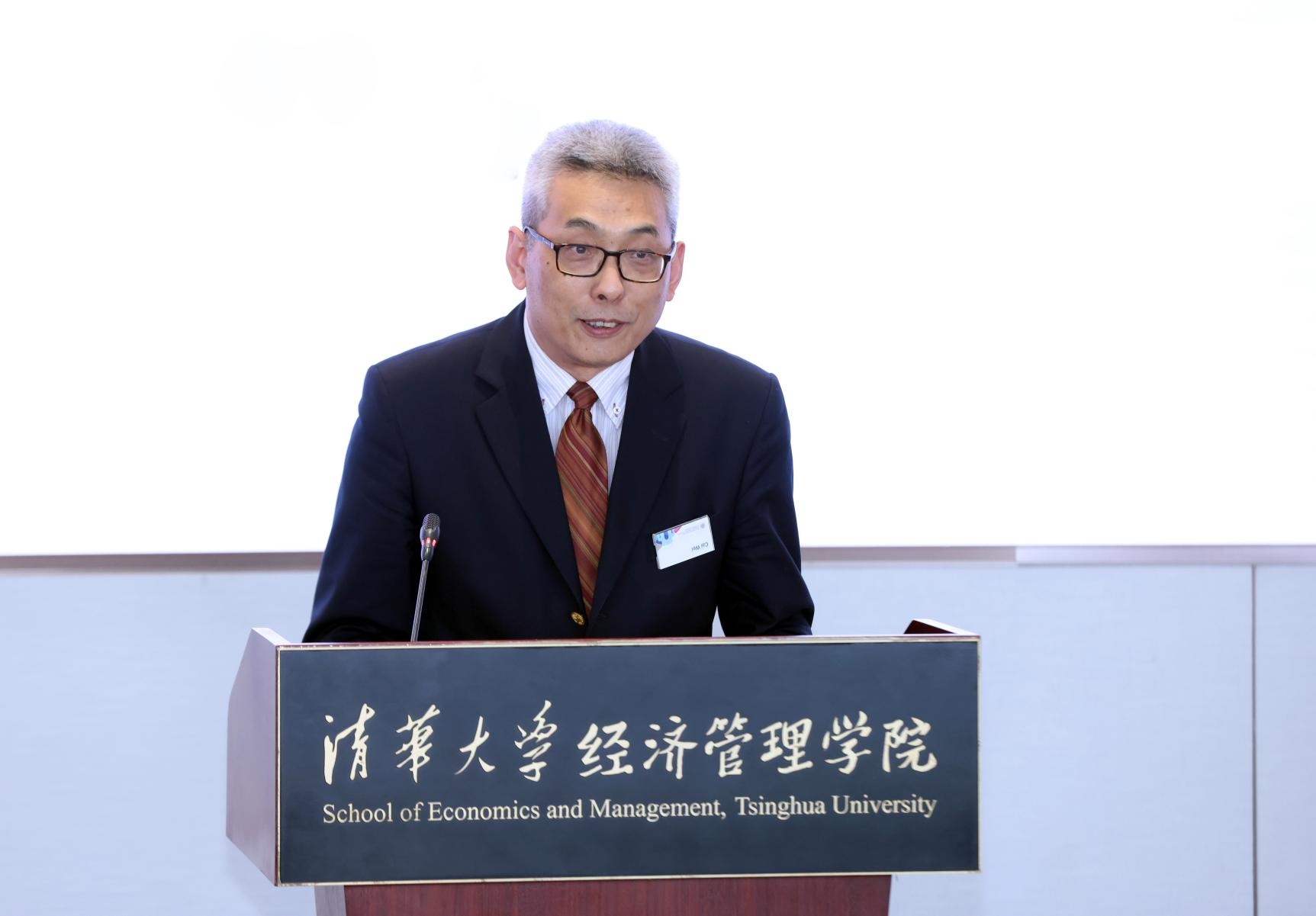
Cai Wei delivers a speech.
Cai Wei emphasized the importance of openness and cooperation in China-LAC relations. He highlighted that China's investment and development initiatives in the LAC region are driven by principles of equality, mutual benefit, and cultural inclusivity. He also looks forward to continued openness and collaboration.
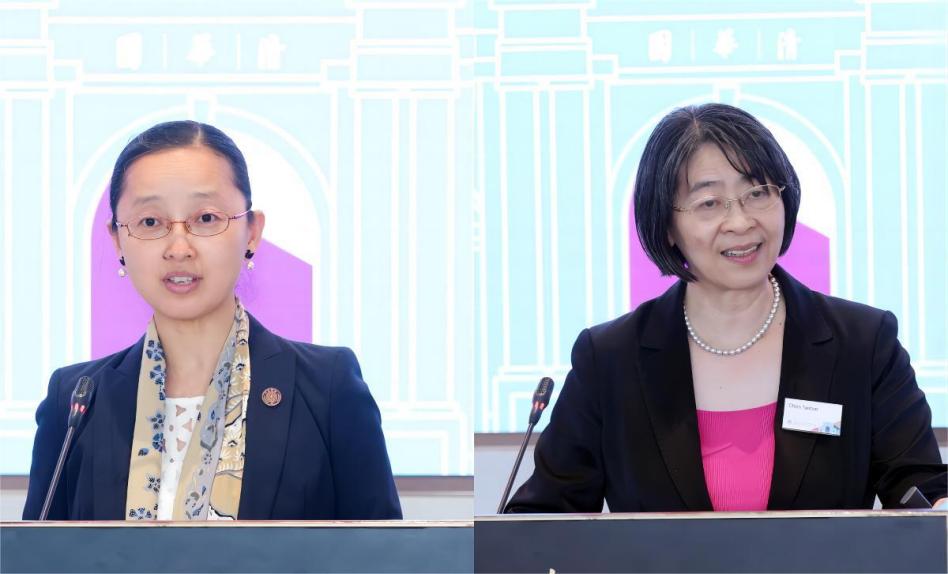
Liao Ying (L) and Chen Taotao (R) speak at the event.
Professor Chen Taotao, director of Tsinghua University's Latin American Center, discussed China's current and future investments in the LAC region. Liao Ying, director of the Center for Global Competence Development at Tsinghua University, shared initiatives to enhance Tsinghua students' global competence and overseas experiences.
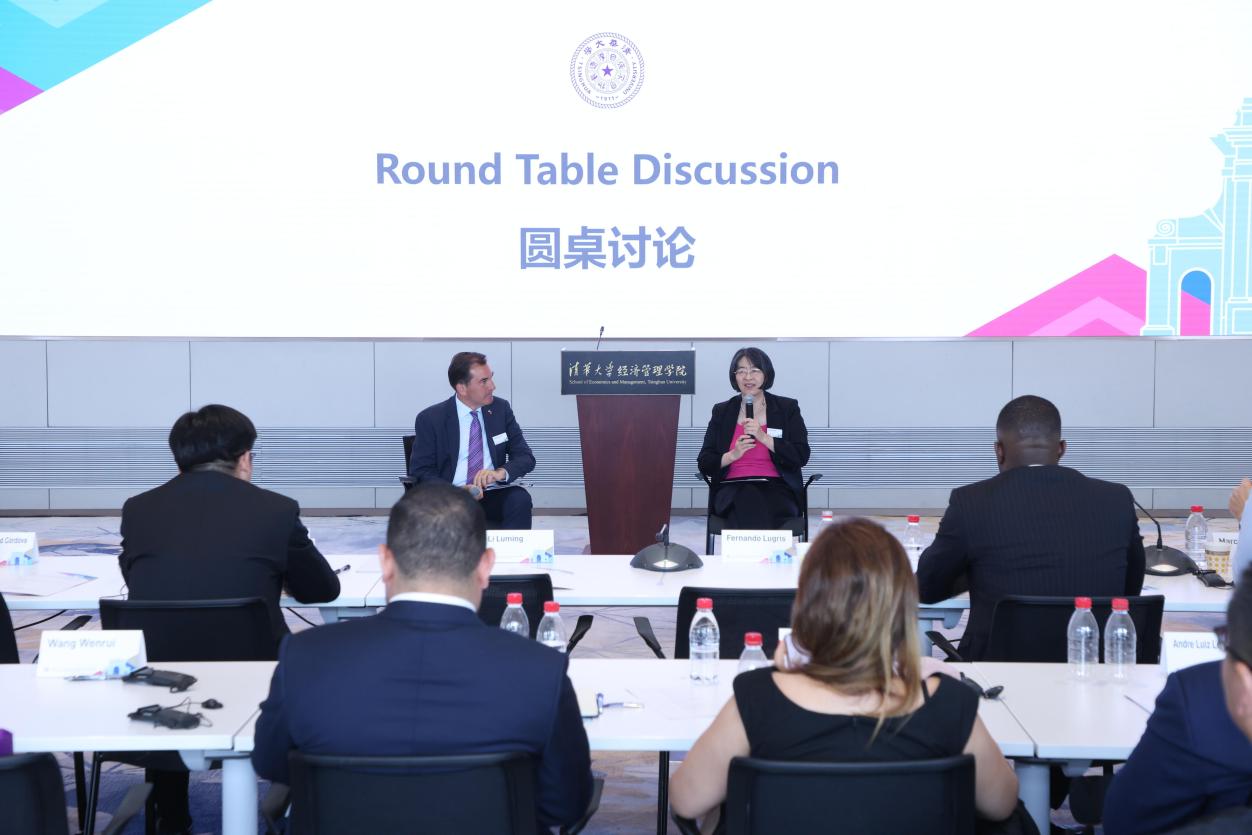
A roundtable discussion
During the roundtable discussion, ambassadors from LAC countries engaged in in-depth exchanges on the event's theme. They agreed on the significance of the event in fostering mutual understanding and expressed hopes to strengthen exchanges and cooperation with Tsinghua University.
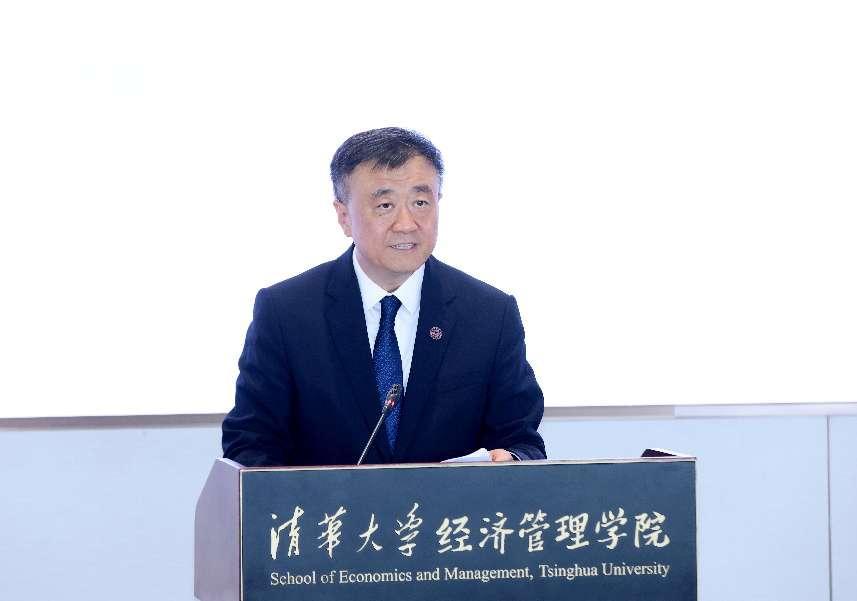
Yang Bin delivers a speech.
In his closing remarks, Yang Bin highlighted the strong, growing relationship between China and LAC countries, built on mutual understanding and cooperation despite geographical distances. He emphasized Tsinghua University's commitment to fostering openness, integration, and resilience, cultivating globally competent individuals, and enhancing international engagement through alliances and multilateral cooperation. Yang said he is confident that the event will pave the way for more cooperation in areas such as economic development, youth empowerment, artificial intelligence, and online education.
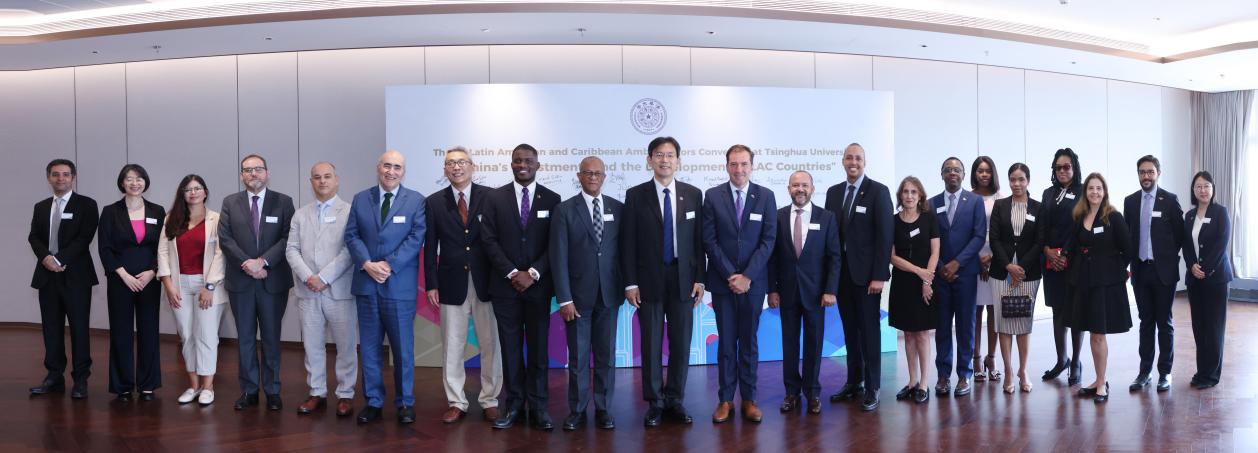
Attendees assemble for a group photo.
Guests attending the event also included Briunny Garavito, ambassador of the Dominican Republic to China; Hallam Henry, ambassador of Barbados to China; Marcos Galvão, ambassador of Brazil to China; Mauricio Hurtado, ambassador of Chile to China; Michael Campbell, ambassador of Nicaragua to China; María Soledad Córdova, ambassador of Ecuador to China; Arthur Williams, ambassador of Jamaica to China; Marcelo Suarez Salvia, ambassador of Argentina to China; Dwinel Bélizaire, permanent representative of Commercial Development Office of Haiti, and representatives from Guyana, Cuba, Panama, Colombia, Mexico, Suriname, and Antigua and Barbuda.
The event was hosted by Tsinghua University and co-organized by the University's Latin America Center, the Institute for Global Development, the Center for Global Competence Development, and the Center for China-Latin America Management Studies of the School of Economics and Management. Nearly 100 faculty and students from the University participated in the event.
Editor: Li Han

